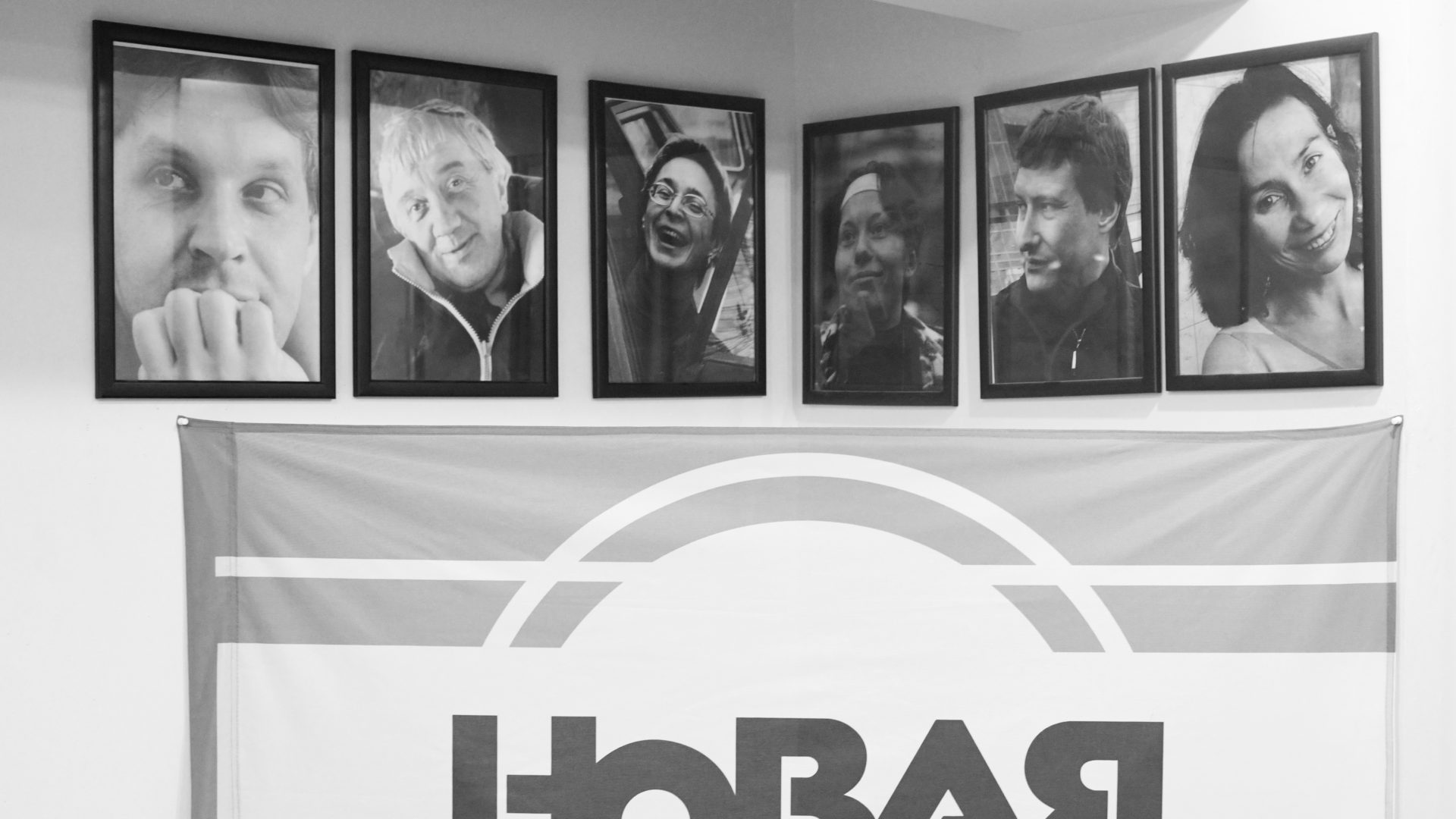This Op-ed, written by Ane Tusvik Bonde, Senior Advisor at Human Rights House Foundation, was originally published in the Norwegian-language daily newspaper Dag og Tid in a shorter version on 14th October 2021.
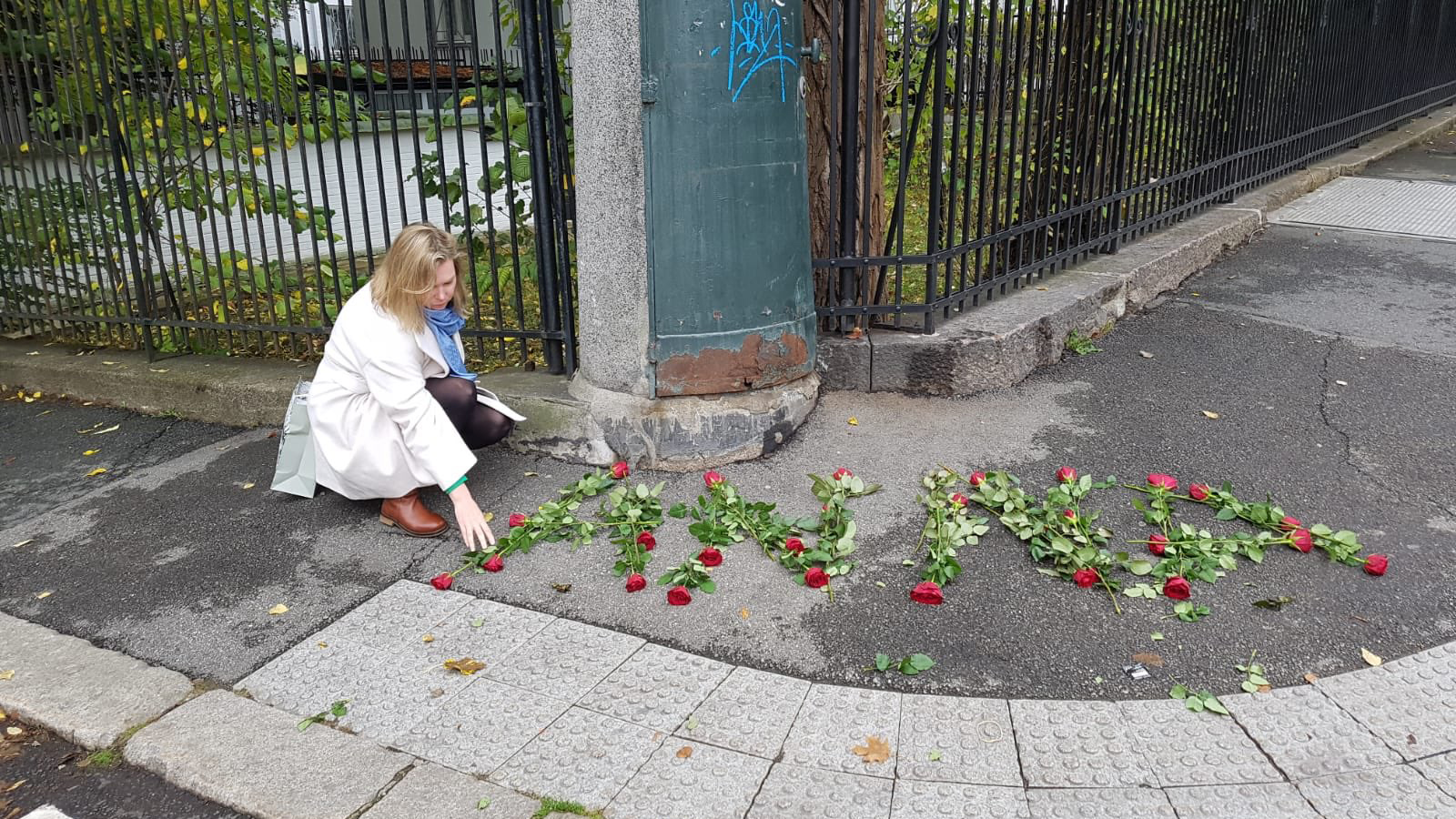
We wrote her name, ANNA with red roses, to make sure that we ourselves, those who passed by and those who would certainly clear the flowers away, would not forget Anna’s brave voice. The voice that never stopped digging and uncovering human rights violations in Russia and especially in Chechnya.
A voice that never stopped asking who was behind the atrocities.
A memorial wall for fallen colleagues
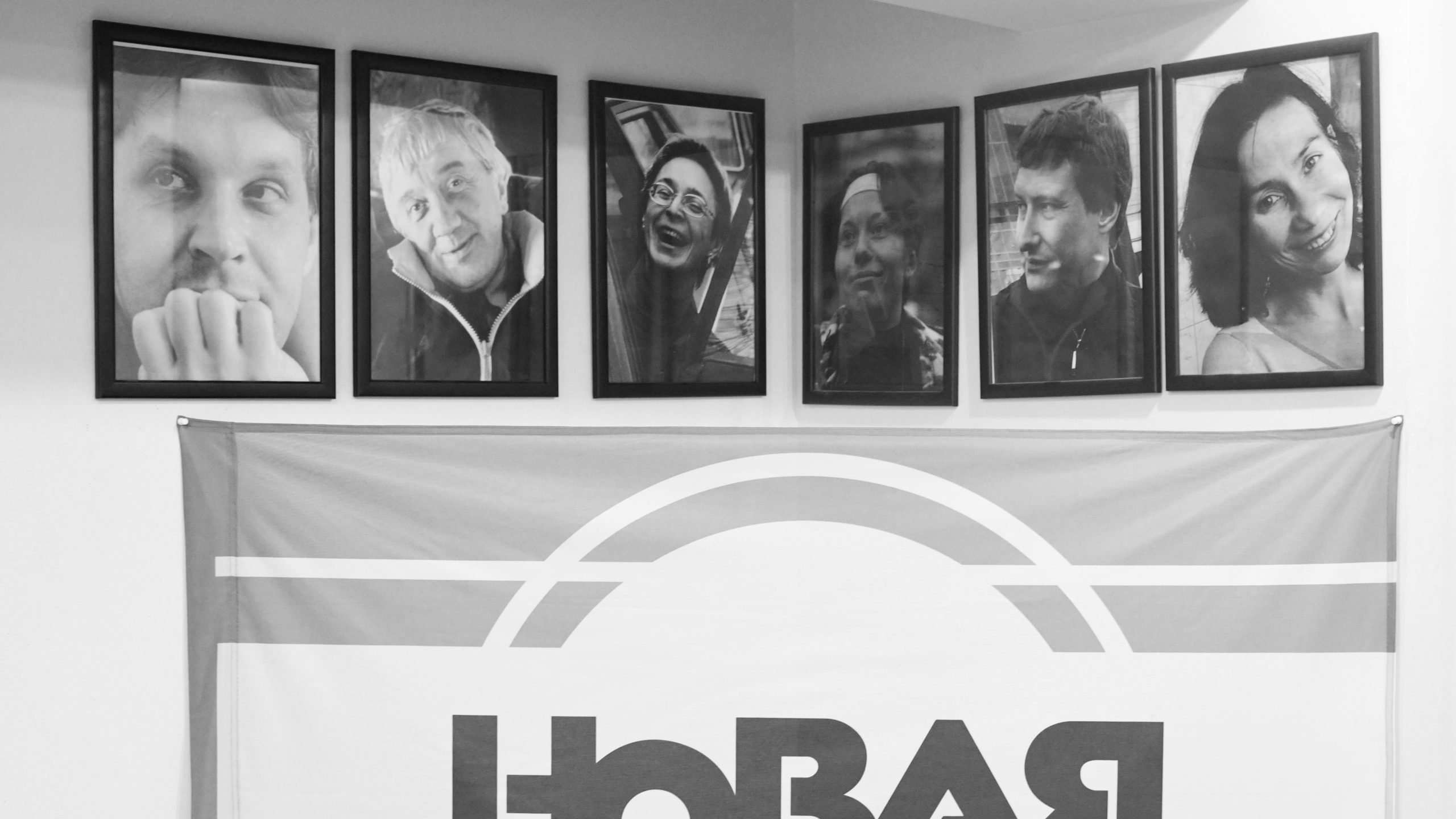
At the editorial office of Novaya Gazeta, you will find a memorial wall with a picture of Anna Politkovskaya and the other employees who have lost their lives. When Novaya Gazeta editor Dimitri Muratov learned that he had been awarded the Nobel Peace Prize, he dedicated it to his colleagues who died for their work; Igor Domnikov, Yuri Shcekosjikhin, Anna Politkovskaya, Stanislav Markelov, Anastasia Baburova and Natalia Estemirova.
Six people. Their fates include being beaten to death, shot in the street, and poisoned.
Igor Domnikov, was the first to be killed. As a journalist, he covered material on culture and education. In 2000, he was attacked by several men using hammers outside his home in Moscow. At the same time, another journalist from Novaya Gazeta, who had been digging into corruption cases in the oil industry, was living in the same building. Several of his colleagues believe the attack would have been directed at him.
Yuri Shcekochikhin, the editor-in-chief, died in mysterious circumstances in 2000 while investigating the security services’ possible involvement in the bombing of several homes in Moscow and other cities in 1999.
Stanisalv Markelov was shot on the street on January 19, 2009. He worked as a lawyer for Novaya Gazeta and several of the victims Anna Politkovskaya had written about.
Anastasia Baburova, an intern at Novaya Gazeta, who had accompanied Markelov from a press conference, was also shot and later died of her injuries. Two young neo-Nazis were convicted in 2011.
When I observed an appeal in Moscow for Amnesty Norway in 2006, I met Markelov who was an assistance lawyer for the family of the victim. I remember he presented a strong case while the judge did what he could to ignore him.
Dumped in a ditch
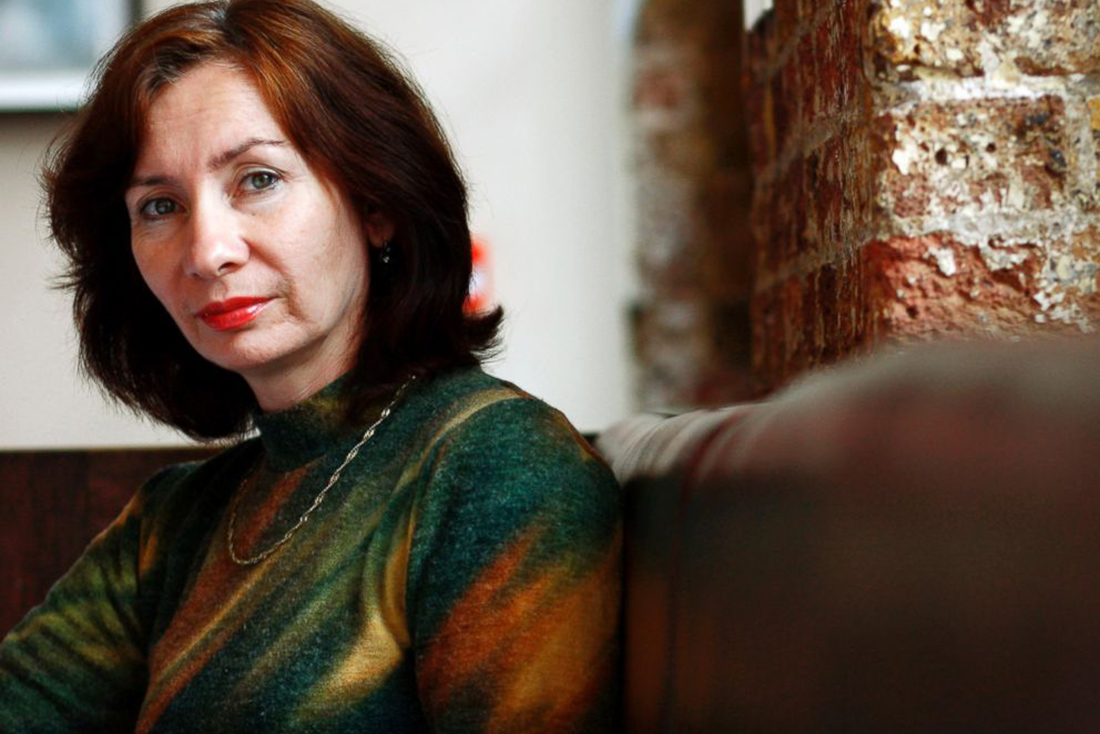
Earlier this autumn, 12 years after the murder of Natalia Estemirova, the European Court of Human Rights in Strasbourg ruled that the investigation into her murder had not been effective. The Court decided the evidence provided was not sufficient to prove that the Russian authorities were behind the kidnapping and murder of the journalist and leader of the Memorial’s office in Grozny.
When I drove from Ingushetia to Chechnya in 2013 with my manager at the time, one of the journalists who travelled with us suddenly pointed out the window at the place they found Natalia. I did not know her, but I remember well her dignified appearance the year before. Regal in demeanour, Natalia had said goodbye to other human rights defenders in Tbilisi after a seminar as if she knew it was the last time she would see them. The murder in July 2009 shocked us all. But it didn’t truly sink in for me before I drove past the place she was found. One day you are a reporter for Novaya Gazeta working to help the victims of abuse – you dig into the things that no one else would. The next morning, you are kidnapped, shot and dumped in a ditch.
Russia’s lost conscience
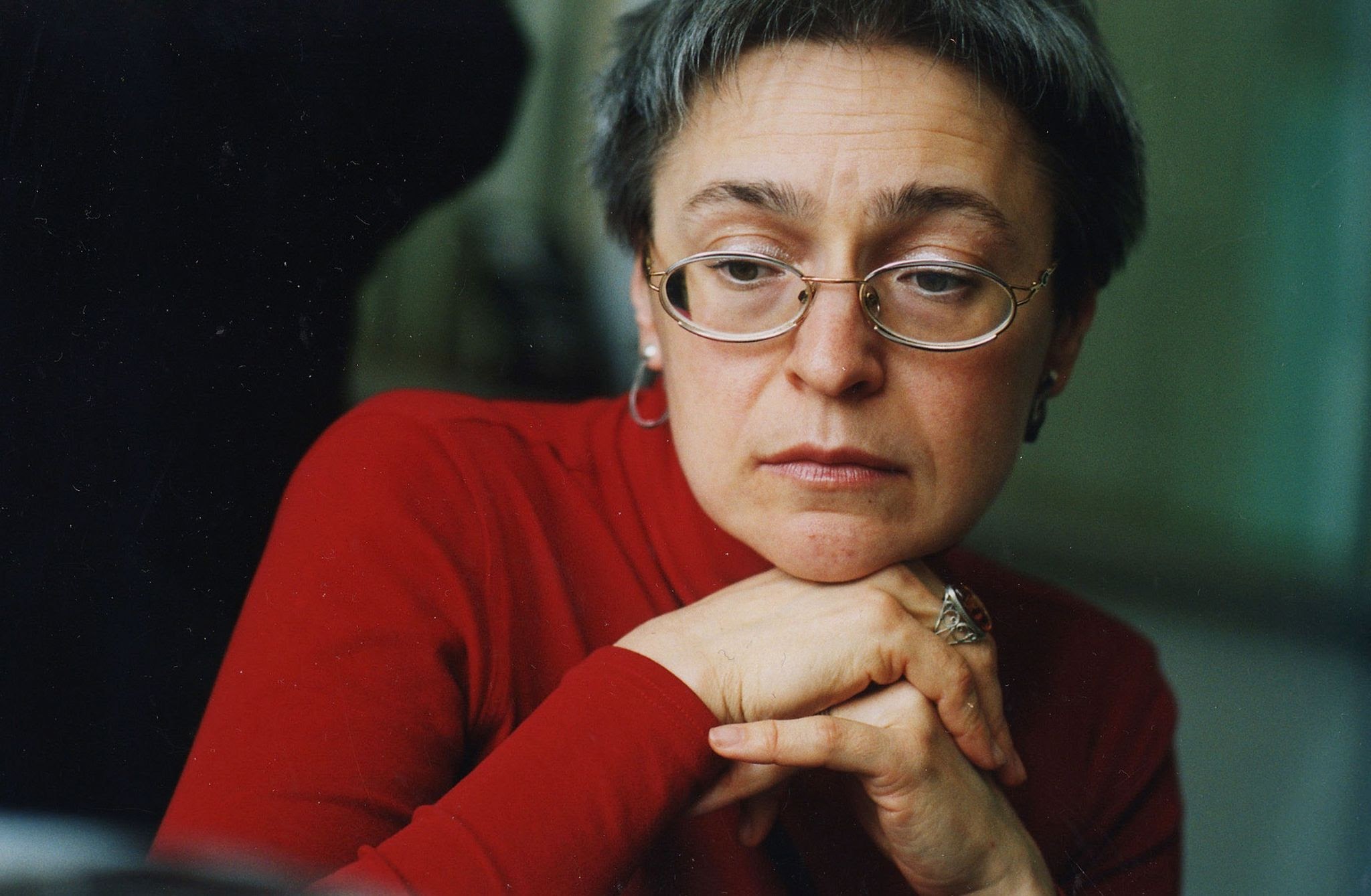
Three years before the murder of Estemirova, Anna Politkovskaya had been shot in her own apartment building. President Putin remarked that her efforts were insignificant. Novaya Gazeta started its own investigation of the case. In 2014, two men were sentenced to life and two others were sentenced to 12 and 20 years for the crime. However, the person who ordered the murder has never been held responsible.
Anna saw where Russia was heading long before the rest of us. She tried with great effort to wake up the Russians as well as Western decision-makers. She wrote about the human side of the conflict. Through her stories, people learned about torture, cases of missing persons, how the elderly suffered…
The articles and books in which she describes Putin’s Russia make for terrifying reading, especially in retrospect when we have seen so many of her warnings come true. She was disappointed with the Western media and annoyed with some of the superficial journalists here in Norway who did not seem to care about what she reported. The Norwegian journalist Stian Bromark wrote in his book released several years after her murder that Politkovskaya was not only Russia’s lost conscience but also Europe’s.
Anna often went above and beyond her role as a journalist to help people. She assisted people to evacuate from a Chechen hospital, she helped her sources to flee Russia when it became too dangerous for them to stay. By retelling individual stories, she demanded justice for them. She wrote 13 articles to bring a case to court after a young Chechen boy had disappeared. When a conviction was made on the case, the boy’s relatives thanked Anna Politkovskaya.
“One must fight to the end,” Politkovskaya wrote. “As I see it, a fungus that grows under a large leaf can not just wait and hope to survive … If you were born a human, you can not behave like a fungus,” she wrote in the note to A Russian Diary.
It must not have been easy to have been her editor. She was unstoppable in many ways. Although Muratov forbade her to go to Chechnya during her final years, she continued to cover the region. She also demanded much from us within the human rights movement. She did not care about your positions, only your actions. When I was a volunteer coordinator for Amnesty Norway, I met her several times during her visits to Norway but never became close to her.
I know her best through what the victims said of her and through the care she had for them.
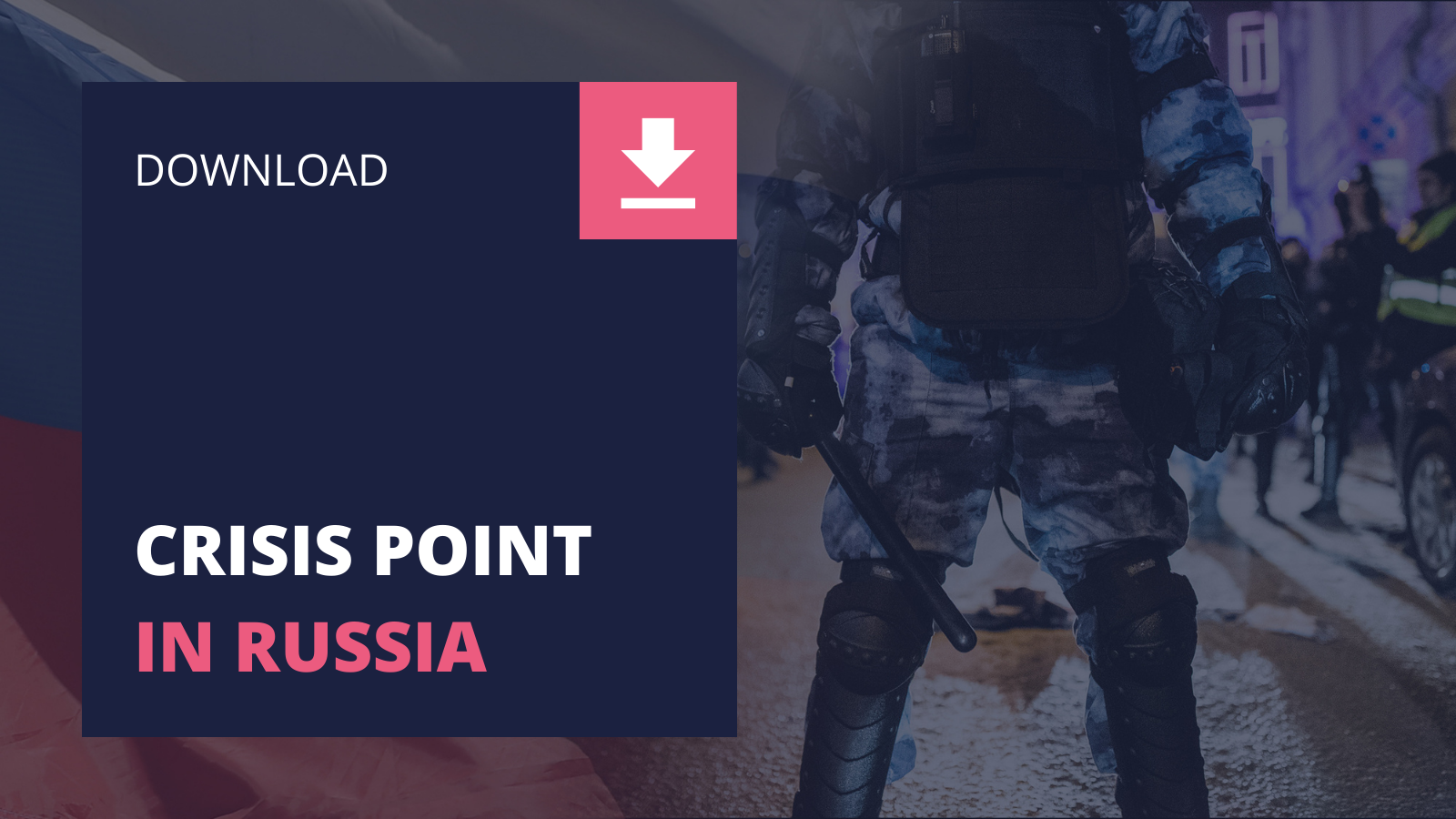
The environment for human rights defenders and organisations in Russia is increasingly dire. In November 2021, Human Rights House Foundation launched the report “Crisis Point in Russia” outlining the impact of the sweeping crackdown and use of increasingly restrictive and repressive legislation in Russia on the work of Russian civil society domestically and internationally, providing recommendations to the international community and the Russian authorities.
Threatened by Kadyrov
Anna inspired a whole generation of Russian journalists. One of them was Elena Milashyna. She went to Chechnya and covered the situation for Novaya Gazeta after the murders of Politkovskaya and Estemirova. She was the one who, in 2017, uncovered how LGBT+ people were abused and killed in Chechnya. When she received the Fritt Ord Press Free Media Award in 2016, Elena said that she would continue to travel the North Caucasus. If she stopped, those who threatened her would win.
“If you [Russian federal authorities fail to act and] want us [Chechen officials] to commit a crime and become criminals, just say it. One [of us] will take on this burden, this responsibility, will be punished in accordance with the law, spend some time in jail, and then walk. Don’t make bandits and killers out of us…” This threat came from Chechen leader Ramzan Kadyrov, who was furious after Milashyna’s April 2020 article in Novaya Gazeta on how the Chechen government compared those infected with Covid-19 to terrorists. The Russian Media Authority asked Novaya Gazeta to remove the article as it could harm health and safety in the country. Earlier that year, Milasjina had been physically attacked at a hotel in Grozny. Despite the risk, she continued her work.
Every year, Nadezhda Azhgikhina organises a memorial concert for all the family members of killed journalists in Moscow. She does it for them, but also for herself. She is the widow of editor Yuri Shchekochikhin, who officially died of allergic shock in 2000. His colleagues suspect that it was actually radiation poisoning. Anna Politkovskaya also claimed that she was poisoned on the plane to Beslan. It may have seemed unlikely to many at the time. Honestly, I admit that back then, I thought she was a little bit paranoid but in light of cases such as Litvinenko and opposition leader Navalny, State-sponsored poisoning no longer seems far-fetched.
Limiting the space for independent journalists and media
From 2000-2021, 27 journalists have been killed. Over the past 15 years, Russian lawyers have cited more than 30 new laws that limit the space for independent journalists and the media according to Nadezhda Ashgikina, former vice president of the European Journalists’ Association, in an October 2020 Op-Ed for The Nation.
On the same day as the 2021 Nobel Peace Prize was announced, nine journalists and the media were added to the list of “foreign agents” in Russia.
Designation as a “foreign agent” brands you as someone that works for foreign powers against your own country. It scares away advertisers and partners at the same time as you have to report to the government several times a year while you wait for a new inspection.
The anniversary of Anna Politkovskaya’s murder was marked in Moscow this year, though there were certainly no crowds of people out on the streets. Demonstrating or protesting legally is almost impossible after the latest legislative changes in Russia passed in the last six months. Even the one-person picket – standing alone with a poster on the street is enough to be arrested. Those who have protested against the fact that colleagues have been branded as “foreign agents” have themselves been detained and fined.
Nadezda Azhgikhina, who is now the leader of the Moscow PEN, writes that the Nobel Peace Prize shows that idealism has value. “It is an inspiration for journalists and our readers. It is hoped that those responsible for the crimes against journalists will be named and held accountable and that impunity will end. The award is an important sign of solidarity.”
These are words that resonate with Andrej Dynko, editor of Nasha Niva in neighbouring Belarus: “The fact that the award goes in support of the free press is also inspiring for us editors and journalists in Belarus,” he wrote to me when the award was announced.
Celebrating independent Russian journalism
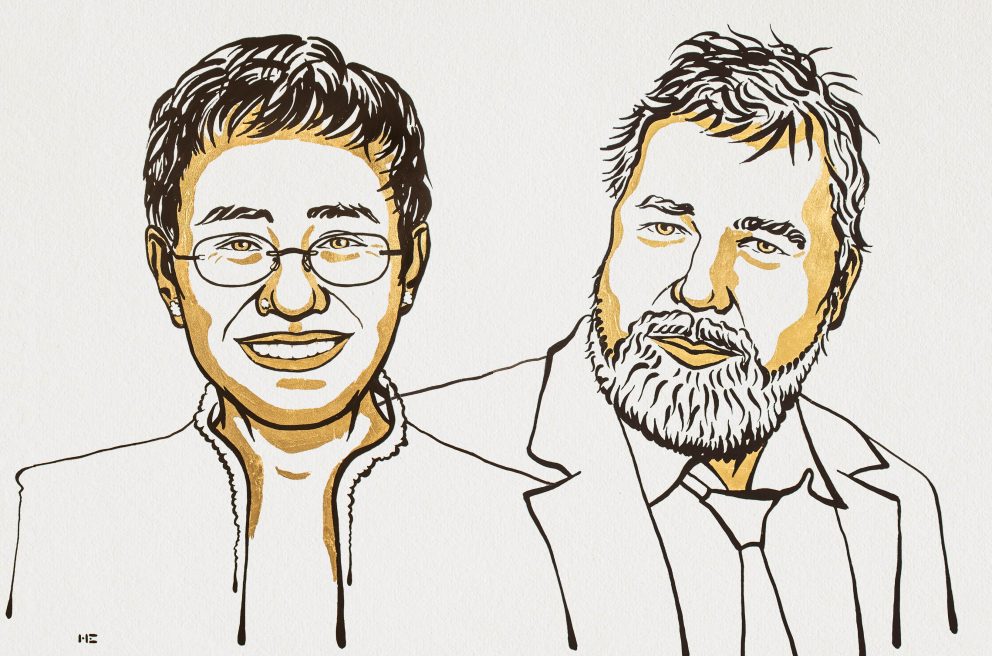
This award is critical, as it goes to all those who work for Novaya Gazeta despite threats and attacks, despite the fear of becoming the next on the list of foreign agents. It goes to those who show up to work every day at Russia’s bravest newspaper, walking past the memorial wall with the photographs of their dead colleagues.
It goes to an editor who takes the risk to publish even if the Kremlin or Kadyrov is not happy with the content. It goes to those who, throughout all of these years, have published articles without the consideration of clicks or views, but with the commitment that the truth must come first.
This prize is for all the other Russian journalists who hold press freedom sacred. It is for the correspondents of DOSH, the only independent magazine in the North Caucasus, the web portal Caucasian Knot (Kavkaski Uzel) and for the human rights defenders who are still present in Chechnya.
This prize is for all those who have lost a mother, father or child because they searched for the truth. It is for the people who, as a result of the murders of investigative journalists, were robbed of answers to who was responsible for the murder of their loved ones.
While celebrating independent Russian journalism is off-limits in Moscow, I look forward to Oslo lighting up in celebration of free expression and those that risk everything for the truth in Russia.
Top photo: Memorial wall for colleagues that have died for their work at Novaya Gazetta offices in Moscow. L-R: Igor Domnikov, Jurij Shcekochikhin, Anna Politkovskaya, Anastasia Baburova, Stanislav Markelov and Natalya Estemirova. Photo from Elena Milashyna.


